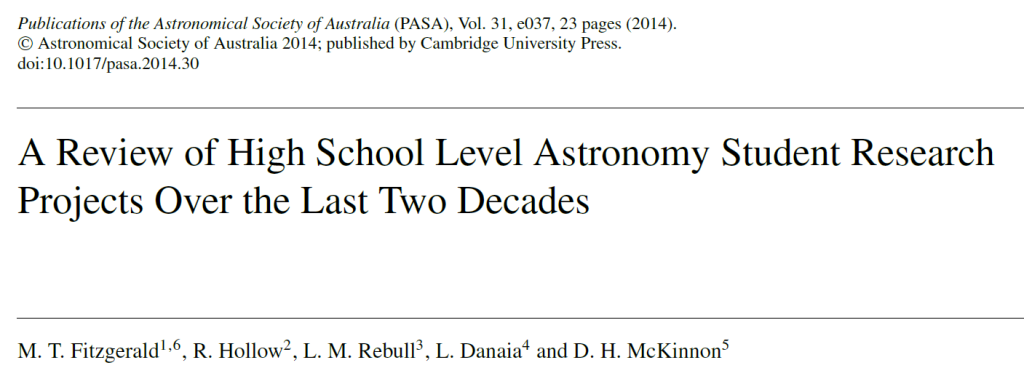Our Solar Siblings is a free service to teachers and students worldwide. The content is based around addressing various elements of the Australian Science Curriculum as well as the International Baccalaureate. Despite these foci, our research into curriculum offerings shows that the content is much more generally applicable.
Las Cumbres Observatory Global Telescope Network is an institution that provides free access to robotic telescopes for educational use. It is funded by a private philanthropic non-profit Foundation in the USA.
Science teachers generally would like to have access to new technologies in their classrooms. The realities of school budgets mean there is little chance of the average teacher in the average school being able to pay much, or at all, for the opportunity. The lower the socioeconomic context of the school, the less likely it is that they could afford it. Hence, to be equitable and fair, access for education users needs to be made freely available.
In our review, published 2014 in the Publications of the Astronomical Society of Australia (arxiv version), the first major issue that determined the success of projects like ours was FUNDING. It was apparent that those projects that relied solely on grant funding tended to come to an abrupt end when the funding ended. Grant funding typically lasts for three years. For some projects who were successful in getting three bouts of three-year funding, this meant that they lasted for a decade. Others only lasted the initial three years. For educational projects, which really require longevity on the scale of decades to have any long-lasting effect, this is clearly not the best option.
As we state in the paper, it is not entirely clear what the best approach should be to provide continual and ongoing support and resources from a financial perspective. It is the case that the long-term projects have one or more of the following: have low budget requirements; make good use of volunteers; are funded as a long-term project through a government body; charge participants; or, receive funding through philanthropy.
We have relatively low budget requirements and make good use of volunteers (including ourselves). We cannot imagine charging for our services for the reasons outlined above or tying ourselves to a government body would also open the possibility of the entire project being cut at the next budget cycle meeting. The one option left open to us? Philanthropy.
This is where YOU come in.
| Support Our Solar Siblings! |
![]()
If you would prefer to make a monthly donation of a different value or to make a one-off donation of any value, please click the following button:
We would prefer more numerous smaller ‘sustaining’ donations over a longer period of time, rather than larger one-off donations. The donations will pay for administrative and development costs for the project such as printing, Internet and web-site fees. Above these general costs, we intend to fund long-term teacher professional development endeavours, in terms of travel and accommodation costs, venue hire and teacher release for single days as well as school visits and class observations for continuing feedback and development.
All this does put pressure on us to perform and to convince you we are worth a small investment. That is a good pressure to have. It motivates us. In terms of our performance, this will be measured against our goals as stated in our
Education Design Paper:
- Involve the nontrivial use of real astronomical data from a real research grade telescope;
- Increase students’ understanding and appreciation for the universe around them, what it looks like, what its history is and where they are in it as far as we can currently ascertain;
- Increase students’ appreciation for the true methodology and approach of science in contrast to the general, currently poor, students’ perceptions of school science;
- Increase the probability of students choosing science, other than as a potential personal interest, as a topic for higher level study or as a potential future career path or, at the very least, help them discover they are actually interested in science; and,
- Enable students, or a smaller subset that so desire, to take their research to a natural scientific conclusion in the form of a scientific publication.
Please consider becoming a monthly sustaining member for the price of a coffee or two a month to support our endeavours to help students understand the universe and their place within it!


Good one the Parramatta CEO crew. I hope Michael performed on Monday. That looks like a GOOD CMD.